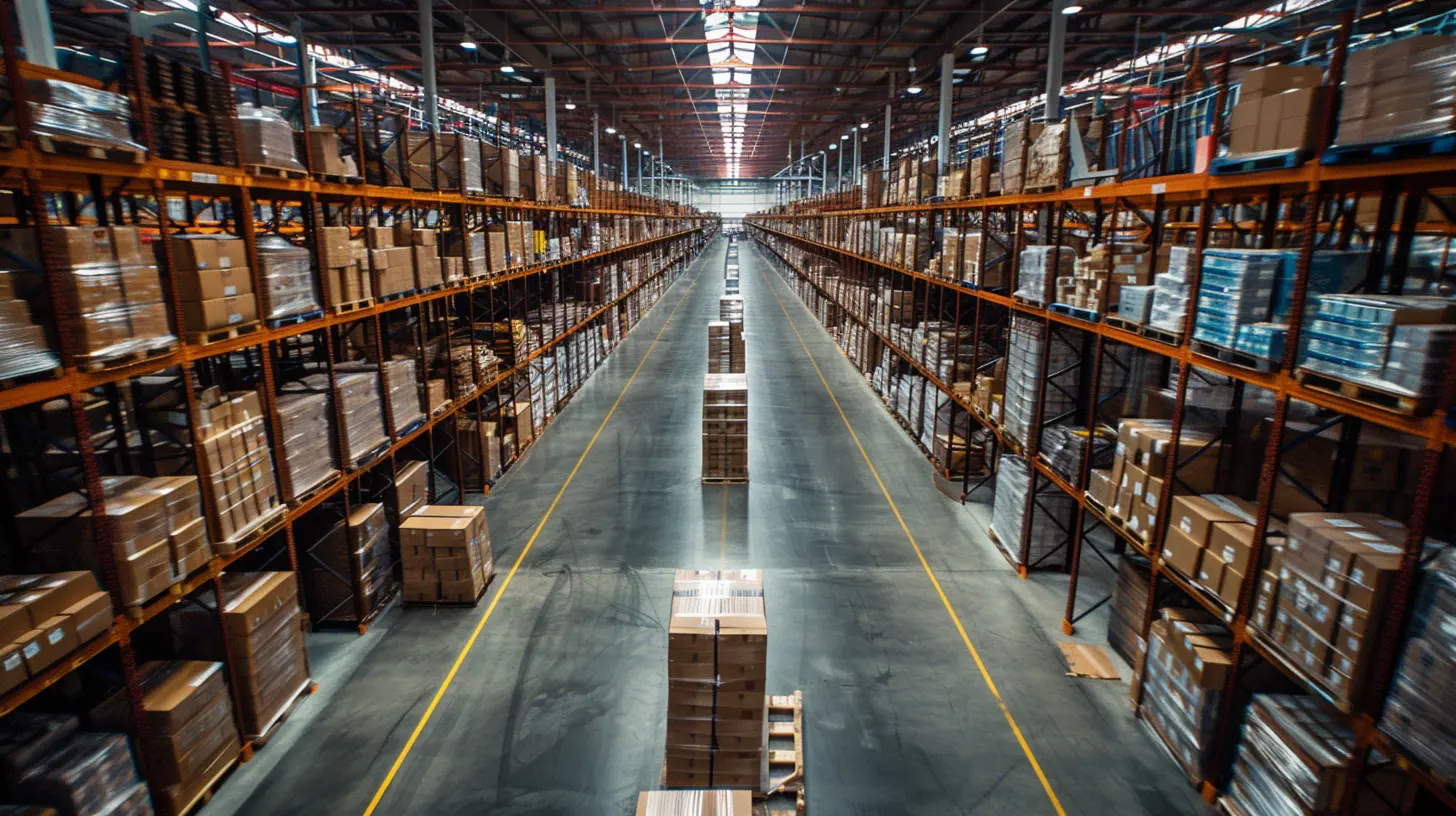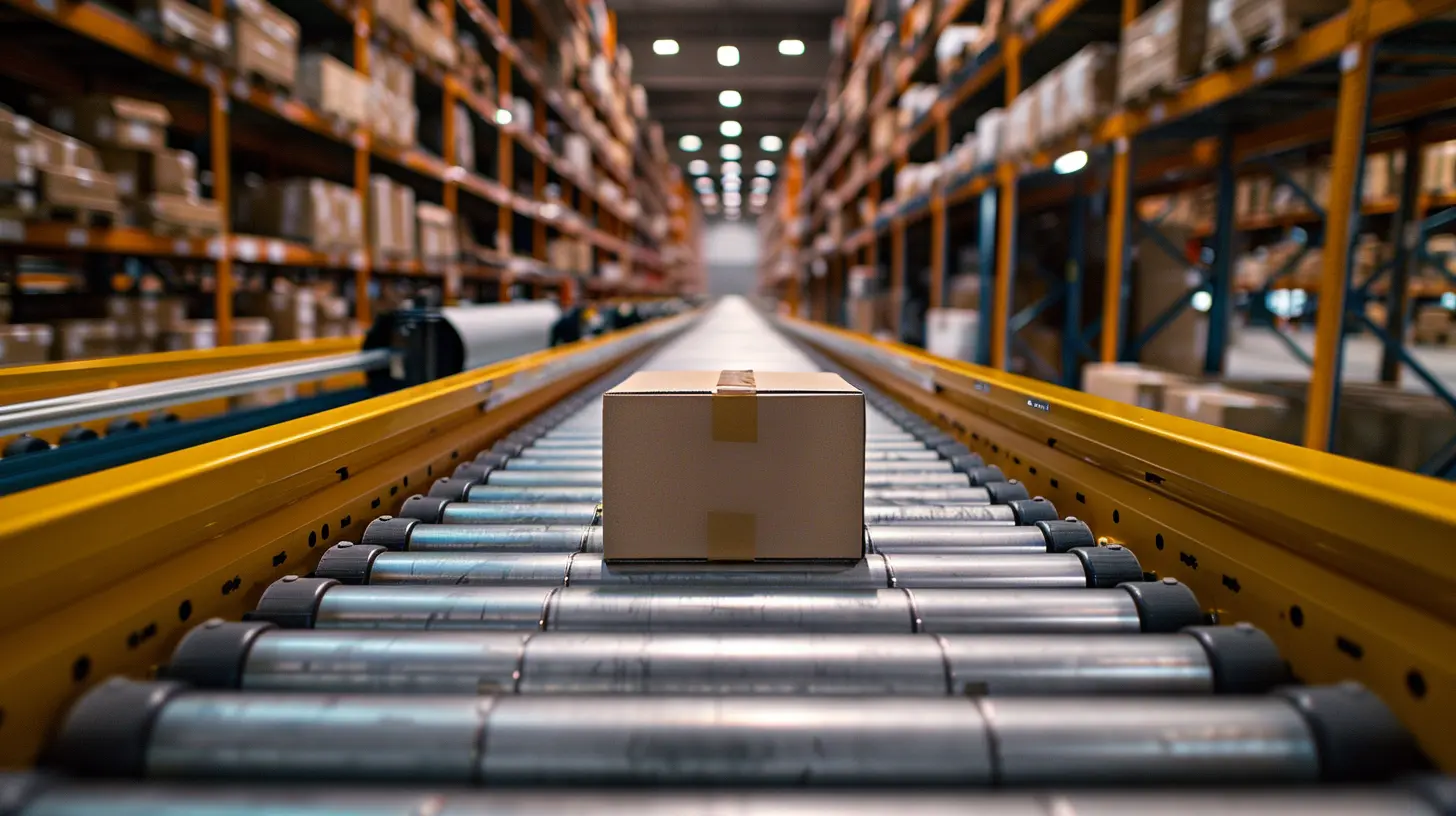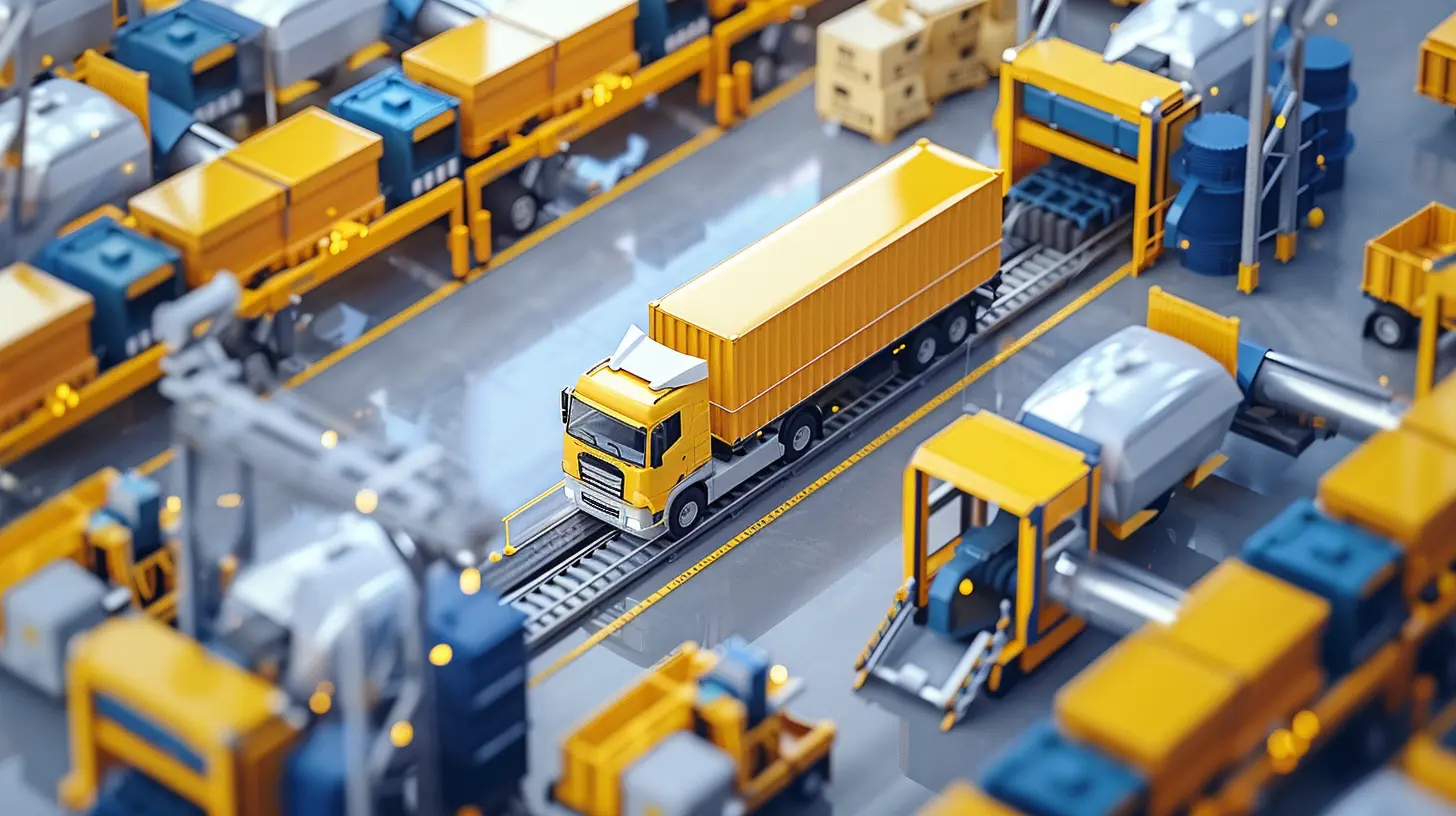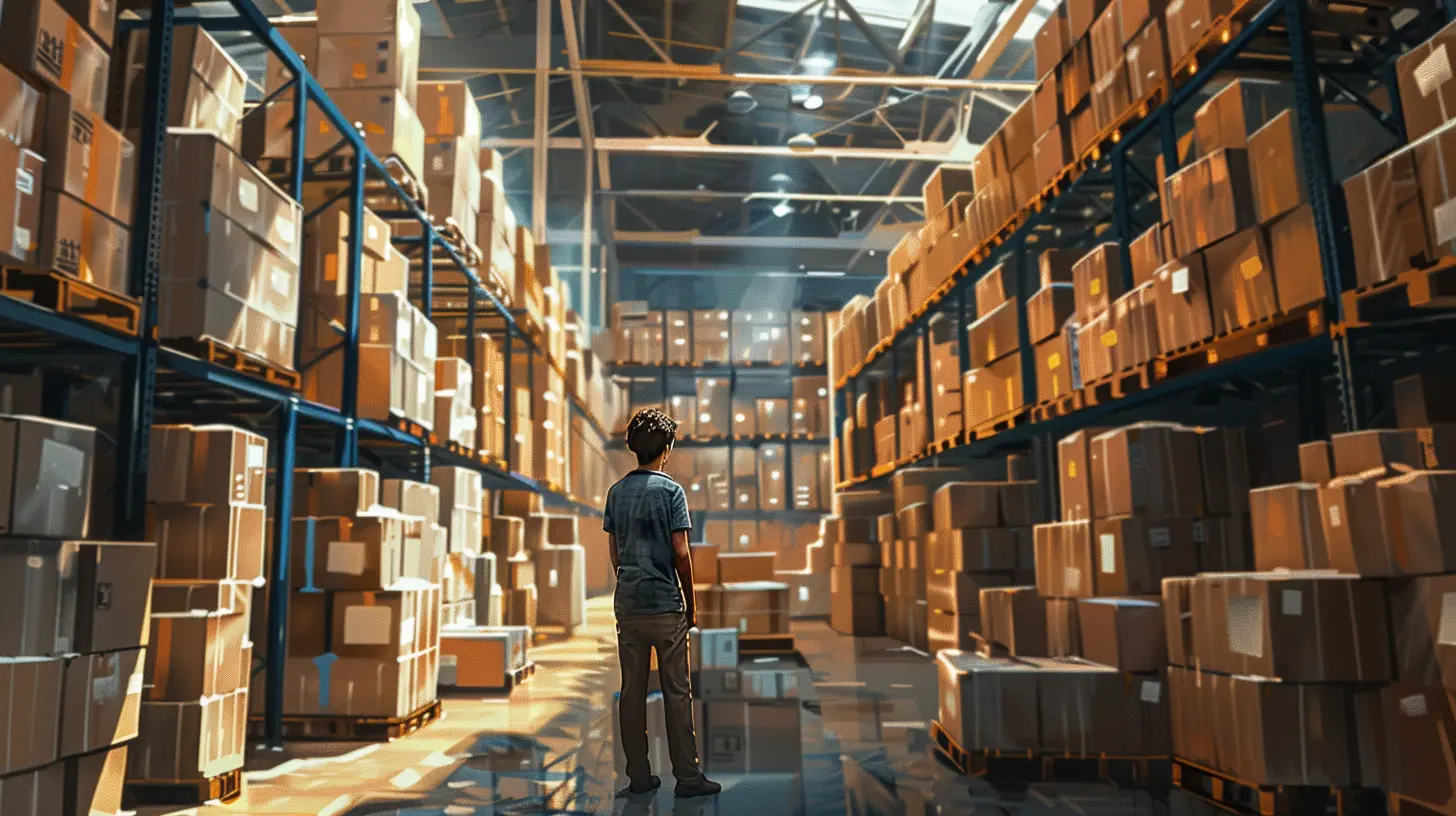The Role of Reverse Logistics in Modern Supply Chain Operations
10 April 2025
Ah, reverse logistics—the unsung hero of the supply chain. It’s like the awkward younger sibling of traditional logistics that no one wants to talk about, but without it, businesses would be drowning in returns, defective products, and unsold inventory.
While companies are busy shipping products at lightning speed to keep customers happy, they often forget that not every item makes it to its "forever home." Some come crawling back—damaged, unwanted, or simply regretted (hello, impulse shoppers). And that’s where reverse logistics steps in, saving companies from absolute chaos.
So, let’s break down why reverse logistics isn’t just a necessary evil but a crucial part of modern supply chain operations. Buckle up because things are about to get interesting!

What the Heck Is Reverse Logistics?
Before we dive into why reverse logistics matters, let’s get one thing straight—what does it even mean?Reverse logistics is the process of moving goods from the customer back to the manufacturer or retailer. Unlike traditional logistics (which is all about getting products to customers), reverse logistics deals with returns, repairs, recycling, and disposal. Essentially, it ensures that unwanted, defective, or unused products don’t just rot away in forgotten warehouses.
Think of it like a boomerang—products go out, and some inevitably come back. Whether due to buyer’s remorse, warranty claims, or damage, companies must have a system to handle these returns efficiently. Otherwise, they’ll end up buried under a mountain of unsellable junk. 
Why Should Businesses Care About Reverse Logistics?
You might be wondering, “Why should businesses even bother with reverse logistics? Can’t they just ignore returns and move on?” Well, unless they enjoy burning money and annoying customers, they absolutely should care.Here’s why:
1. Returns Are Inevitable—Accept It
Thanks to the e-commerce boom and the “Buy-Now-Think-Later” mentality, return rates have skyrocketed. In certain industries (looking at you, fashion), return rates can hit 40% or higher! If companies don’t have a solid return process, they’ll drown in a sea of returned goods faster than you can say “free shipping.”2. Cost Savings—Because Who Doesn’t Love More Money?
A well-optimized reverse logistics process can save businesses a ton of cash. Instead of treating returns as an afterthought, companies can refurbish, resell, or recycle products, reducing waste and maximizing value.Imagine running a restaurant and throwing away every unfinished plate of food instead of repurposing ingredients. Sounds wasteful, right? That’s exactly what happens when businesses don’t optimize their reverse logistics.
3. Customer Satisfaction—Because Happy Customers Spend More
Nothing frustrates a customer more than a complicated return process. People want seamless returns, refunds, and exchanges. If a company makes this difficult, customers will simply take their wallets elsewhere.To put it bluntly—if your return process is a nightmare, expect bad reviews, angry tweets, and a whole lot of lost revenue.
4. Sustainability—Saving the Planet One Return at a Time
Ever wondered where all those returned items go? If companies aren’t careful, they end up in landfills, contributing to the ever-growing waste problem. Sustainable reverse logistics—like refurbishing or recycling returned products—helps minimize environmental impact.So, if businesses want to keep up with modern consumer expectations (and not be labeled environmental villains), they better start taking sustainability seriously. 
Key Components of Reverse Logistics
Reverse logistics isn’t just about throwing returns into a pile and hoping for the best. It’s a complex process involving several key components:1. Returns Management—The Art of Not Losing Your Mind
Managing returns efficiently means having clear policies and streamlined procedures. Companies need to decide whether to refund, replace, or repair items—and they need to do it quickly.Ever tried returning something only to feel like you’re solving a complex math equation? Yeah, no one enjoys that. A simple, hassle-free process is the way to go.
2. Remanufacturing and Refurbishment—Because Old Can Be Gold
Not all returned products are useless. Many can be repaired, refurbished, and resold. This not only cuts losses but also appeals to budget-conscious and eco-friendly consumers.Think about it—if people buy used cars and second-hand designer bags, why wouldn’t they buy refurbished gadgets or appliances?
3. Recycling and Disposal—The “Oops, We Can’t Fix This” Plan
Some items are beyond saving. When products reach this point, companies need to ensure proper disposal or recycling. Dumping everything in a landfill isn’t a great look (or legal in many cases).A solid recycling plan helps businesses reduce waste, comply with regulations, and maintain a good reputation. Because let’s face it, no one wants to be the company that makes headlines for polluting the planet.
4. Reverse Logistics Technology—Because We’re in the 21st Century
Gone are the days of managing returns with a spreadsheet and blind optimism. Companies now use advanced tracking systems, AI-driven analytics, and automation to streamline reverse logistics.Smart businesses invest in reverse logistics technology to improve efficiency, track returned goods, and reduce losses. Because, honestly, trying to manage returns manually is like herding cats—it’s chaotic and exhausting. 
Challenges in Reverse Logistics—Because Nothing Is Ever Easy
Of course, reverse logistics isn’t all sunshine and roses. Companies face plenty of challenges when dealing with returns, including:1. High Costs—Returns Aren’t Cheap
Handling returns requires storage, labor, inspections, and sometimes repairs. Without a strategy, costs can quickly spiral out of control.2. Fraudulent Returns—Scammers Gonna Scam
Some customers (cough scammers cough) take advantage of return policies. Whether it's returning used items as "new" or straight-up sending back bricks instead of laptops (yes, that actually happens), return fraud is a real problem.3. Inventory Management Nightmare
Processing returns efficiently while keeping track of inventory is easier said than done. If products aren’t handled properly, businesses end up with a logistical mess that’s worse than your junk drawer at home.4. Regulatory Compliance—Because Rules Exist
Some products (think electronics, batteries, or hazardous materials) can’t just be tossed out. Strict regulations govern how these items should be handled and recycled. Companies that ignore these regulations risk hefty fines—and a PR disaster.The Future of Reverse Logistics—Where Are We Headed?
If you think reverse logistics is complicated now, just wait. As technology advances and consumer expectations rise, businesses will need to step up their game.Here’s what we can expect in the future:
1. AI and Automation Taking Over
AI-powered systems will help businesses predict return patterns, optimize logistics, and even determine whether a return should happen in the first place (spoiler: some returns are just not worth it).2. Stricter Sustainability Initiatives
Consumers are becoming more eco-conscious, and governments are tightening regulations around waste management. Companies that don’t prioritize sustainability will struggle to stay competitive.3. Blockchain for Tracking Returns
Blockchain technology could revolutionize reverse logistics by providing transparent tracking of returned goods. This could help prevent fraud and ensure accountability throughout the supply chain.4. Returnless Refunds Becoming More Common
Some companies are already experimenting with returnless refunds (where customers get a refund but keep the product). This strategy saves on logistics costs for low-value items—but could it lead to even more return abuse? Only time will tell.Final Thoughts—Reverse Logistics Deserves Some Respect
For too long, reverse logistics has been treated like the neglected stepchild of supply chain management. But in today’s fast-paced, e-commerce-driven world, it’s more important than ever.Businesses that optimize their reverse logistics not only save money but also keep customers happy, reduce waste, and improve overall efficiency. And in a world where returns aren’t going anywhere, that’s a competitive advantage worth having.
So, the next time you casually return that “totally unnecessary” late-night shopping purchase, just remember—reverse logistics is working tirelessly behind the scenes to make it all happen. It's about time we gave it the respect it deserves.
all images in this post were generated using AI tools
Category:
Supply Chain ManagementAuthor:

Remington McClain
Discussion
rate this article
6 comments
Zareth Oliver
Great insights on the vital role of reverse logistics in enhancing supply chain efficiency! It's fascinating to see how businesses can optimize operations and reduce waste through effective return processes. Looking forward to future innovations in this area and their positive impacts on sustainability.
May 8, 2025 at 4:37 AM

Remington McClain
Thank you for your thoughtful comment! I'm glad you found the insights valuable. Exciting innovations in reverse logistics indeed hold great potential for sustainability and efficiency.
Khloe Bennett
This article effectively highlights the critical importance of reverse logistics in enhancing supply chain efficiency. By addressing return processes and sustainability, businesses can significantly improve customer satisfaction and reduce costs. Thank you for shedding light on this essential aspect of modern logistics!
April 17, 2025 at 11:51 AM

Remington McClain
Thank you for your insightful comment! I'm glad you found the article valuable in highlighting the significance of reverse logistics in enhancing supply chain efficiency.
Azura McGivern
Reverse logistics is essential for optimizing supply chains, reducing costs, and enhancing customer satisfaction—it's a game changer in today's market.
April 16, 2025 at 4:24 AM

Remington McClain
Thank you for your insightful comment! I completely agree—reverse logistics is indeed a vital component for improving efficiency and customer satisfaction in supply chains today.
Spike Pruitt
Great insights on reverse logistics! It's vital for enhancing efficiency and sustainability in supply chains. Excited to see how these practices evolve in the future!
April 15, 2025 at 11:19 AM

Remington McClain
Thank you! I'm glad you found the insights valuable. I share your excitement for the future of reverse logistics in driving efficiency and sustainability!
Finn McGee
Reverse logistics is a game-changer in today's supply chain landscape. By embracing sustainability and customer-centric practices, businesses can enhance efficiency, drive innovation, and create lasting relationships. Let's harness this potential for a brighter, more responsible future!
April 13, 2025 at 12:45 PM

Remington McClain
Thank you for your insights! I completely agree—reverse logistics not only fosters sustainability but also strengthens customer relationships and drives operational efficiency. It's a critical component for a responsible future in supply chains.
Soraya Elliott
This article effectively highlights the critical importance of reverse logistics in today's supply chains. Understanding its impact on sustainability and efficiency is essential for businesses aiming to enhance their operational strategies. Great insights!
April 12, 2025 at 2:44 AM

Remington McClain
Thank you for your feedback! I'm glad you found the insights on reverse logistics valuable for enhancing operational strategies.
MORE POSTS

Smart Personal Finance Habits to Protect Your Entrepreneurial Dreams

How to Build and Maintain a Six-Month Financial Cushion for Your Business

Leveraging Micro-Moments in Consumer Journey Marketing

Key Trends Driving Digital Transformation in the Financial Sector

How Enterprises Are Leveraging the Gig Economy